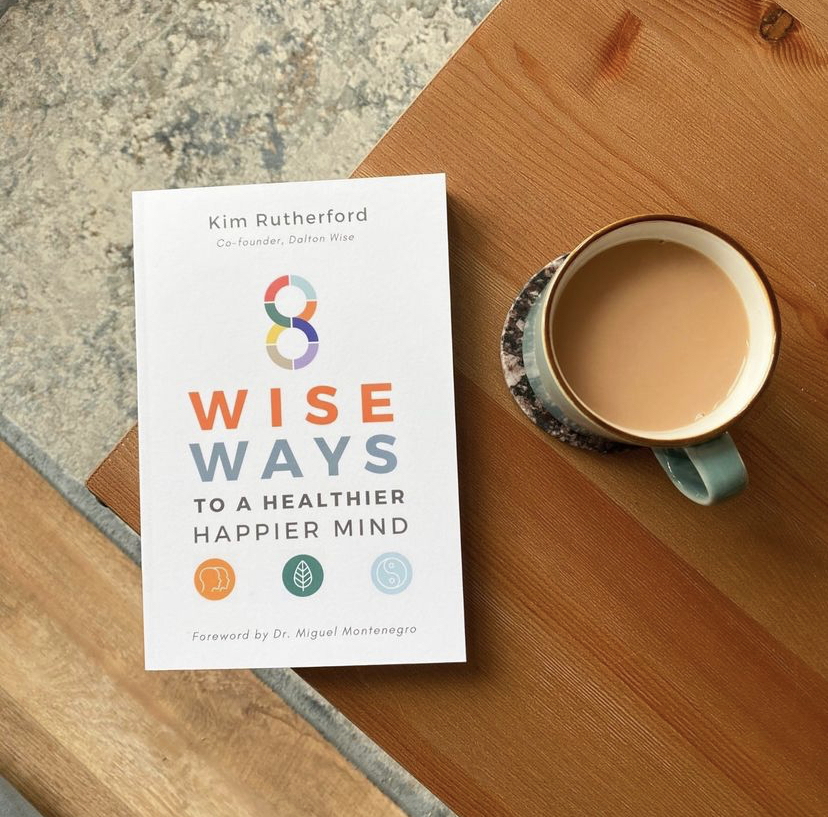Last month we celebrated Mental Health Awareness month, its when I launched my book 8Wise Ways, and we saw the spotlight shine on a very important global issue. For me however, good mental health should be front and centre in everyone’s lives every day.
Why? To start with, the statistics are scary. In 2020, according to the Institute for Health Metrics Evaluation, 971 million people of the global population are suffering with their mental health. In the UK, it is commonly acknowledged that one in four people will experience a mental health problem in any given year (Mental Health Org) and across the pond 46% of Americans will meet the criteria for a diagnosable mental health condition sometime in their life. (Mental Health America). The numbers unfortunately do stack up, and whilst we have amazing health services, they are not equipped to deal with these kinds of numbers.
Once upon a time, I studied statistics as part of my degree, and when I saw a statistic, I’ll be honest I just saw a number, not the face or the experience of the person behind the statistic.

The reality for someone experiencing a mental health problem is monumental.
They will feel that mental health problem emotionally through: • feeling out of control • a lack of motivation • anger and frustration • a lack of confidence • a lack of self-esteem • irritability • mood swings • extra sensitivity to criticism • defensiveness • tearfulness.
They will experience it behaviourally through: • social withdrawal • relationship problems • insomnia or tiredness • recklessness • aggressiveness • nervousness • increased lying • prone to accidents • forgetfulness • increased reliance on alcohol, smoking, caffeine or drugs • workaholic • poor time management • poor standards of work.
They will experience it physically through: • aches and pains • head-to-toe muscle tension • grinding teeth • frequent colds and infections • hyperventilating • feeling of a lump in the throat • frequent pins and needles • dizziness • palpitations • panic attacks and nausea • physical tiredness • menstrual changes • loss of libido/sexual problems.
And they will also experience it psychologically with: • an inability to concentrate or make simple decisions • excessive worrying • negative thinking • depression and anxiety • memory lapses • becoming vague in their interactions and communications • becoming easily distracted • being less intuitive and creative.
I have to ask, is this how we want anyone to feel?
Let alone a quarter of our population to be thinking or behaving? Your mother, father, sister, brother, aunty, uncle, friend, neighbour, colleague, you and me – that is who these statistics represent.
For every number, it’s a person experiencing turmoil, one way or another, as they try to navigate through life.
When I stopped seeing the number and started to see the person, I knew I wanted to do something to help and so I wanted to look at that one in four statistic as something different – I wanted to flip it on its head.
So, I focused on it from a different angle:
1. What would help someone who is part of the one of four become part of the ‘other three’ again? – because I believe that is possible.
2. What would help someone who is part of the ‘other three’ prevent themselves from becoming part of the one in four? – because I believe that is possible too.
I looked at all of these signs and symptoms and knew I had to find a formula to tackle them all. I had to find a formula that was simple and could be used as a standalone process or as part of a more formal, clinical programme.
I created 8Wise so you and all the other people on both sides of that statistic could take back control of their mental health, and with 8Wise Steps to a healthier and happier mind I truly believe that this can happen.
I was once part of the ‘one in four’ statistic, suffering with anxiety, depression and agoraphobia, and today I write this as one of the ‘other three’, living a happier and healthier life, the 8Wise way.


